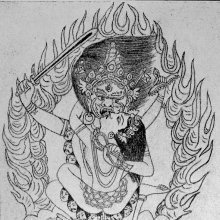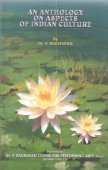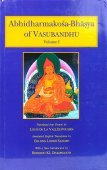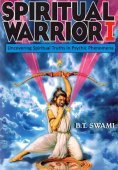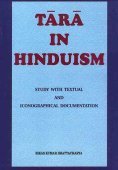Testimony: 1 definition
Introduction:
Testimony means something in Hinduism, Sanskrit. If you want to know the exact meaning, history, etymology or English translation of this term then check out the descriptions on this page. Add your comment or reference to a book if you want to contribute to this summary article.
Images (photo gallery)
In Hinduism
Ayurveda (science of life)
Source: INSA Digital Repository: Caraka’s Approach to KnowledgeTestimony or “Knowledge gained through Testimony of Sages” (Sanskrit: āptopadeśa) refers to one of various means of accessing exact Knowledge, according to the Charaka Samhita (verse 11.3-6).—Sages are exceptional individuals who personify profound knowledge, long experience, truthfulness, freedom from passion and a noble character (Charaka Samhita, verse 11.18-19). They could always be counted upon for counsel, to dispel one’s doubts and provide a means to exact knowledge. This is especially true for a physician who is faced with difficult issues in diagnosis and treatment for which the standard texts and his own resources of knowledge may not provide the answers

Āyurveda (आयुर्वेद, ayurveda) is a branch of Indian science dealing with medicine, herbalism, taxology, anatomy, surgery, alchemy and related topics. Traditional practice of Āyurveda in ancient India dates back to at least the first millenium BC. Literature is commonly written in Sanskrit using various poetic metres.
See also (Relevant definitions)
Full-text (+111): Sakshya, Shabdapramana, Shabda, Pramana, Jabani, Sakshita, Shahidi, Apadisa, Shaidi, Kautasakshya, Sakshilakshana, Kriyadveshi, Padasaksha, Sakshibhavita, Shabdabodha, Kriyadveshin, Sakshibhuta, Gavahi, Darogahalphi, Aitihya.
Relevant text
Search found 169 books and stories containing Testimony; (plurals include: Testimonies). You can also click to the full overview containing English textual excerpts. Below are direct links for the most relevant articles:
Yoga Vasistha [English], Volume 1-4 (by Vihari-Lala Mitra)
Chapter VI - The different stages of yoga < [The yoga philosophy]
Chapter CLXII - Annihilation of ignorance < [Book VII - Nirvana prakarana part 2 (nirvana prakarana)]
Chapter XCVIII - Admonition of sikhidhvaja continued < [Book VI - Nirvana prakarana part 1 (nirvana prakarana)]
The validity of Anumana (inference) in Nyaya system (by Babu C. D)
A Manual of Khshnoom (by Phiroz Nasarvanji Tavaria)
Manusmriti with the Commentary of Medhatithi (by Ganganatha Jha)
Verse 8.98 < [Section XII - Exhortation and Examination of Witnesses]
Verse 8.73 < [Section XII (A) - Evidence]
Verse 8.95 < [Section XII - Exhortation and Examination of Witnesses]
Siddhanta Sangraha of Sri Sailacharya (by E. Sowmya Narayanan)
Chapter 37 - Some Speciality of Verbal Testimony
Chapter 32 - The Validity of Verbal Testimony
Nyaya-Vaisheshika categories (Study) (by Diptimani Goswami)
Pramāṇa (4): Śabda or Verval Testimony < [Chapter 2 - Salient features of Nyāya-Vaiśeṣika System]
The Navya-Nyāya System < [Chapter 1 - Introduction]
Pramāṇa (1): Pratyakṣa or Perception < [Chapter 2 - Salient features of Nyāya-Vaiśeṣika System]
Related products
(+2 more products available)
